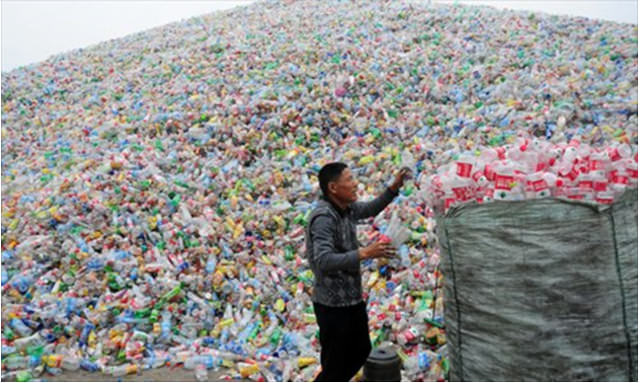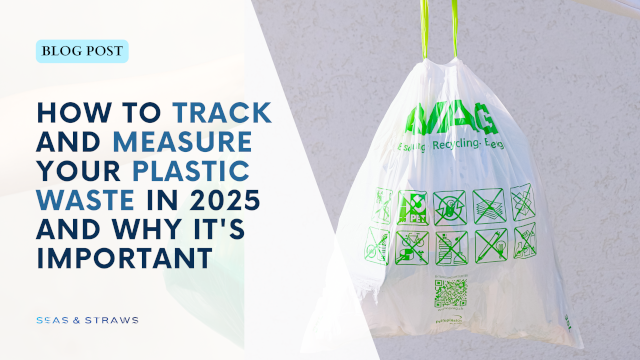China's waste ban may be devastating for the planet
Did you know that high income countries like the US, the EU, and Japan export more than 90 percent of their plastic waste to poorer countries? I bet you thought all your trash was processed around the corner, right? Wrong.
China, the world's garbage dump
Until recently, China was the biggest importer of recyclable material. In total, the nation processed 106 million tonnes of plastic waste since 1992. This accounts for a staggering 45 percent of the total global plastic waste. 89 percent is made up of single-use food packaging.
Here is a figure that makes your head spin: The US alone used to ship 4,000 containers full of recyclable material to China - every day! Can you imagine that?
 China does not take the world’s trash anymore
China does not take the world’s trash anymoreWell, it's over now. As from December 2017, the country stops being the “world’s garbage dump". What does this mean for the world? The consequences might be devastating.
What did China do with our waste and why does it not keep doing it?
The waste was sorted and remade into less-quality items such as clothing and furniture, which was then resold. Until now, this has been a lucrative business for both the exporting countries and for China.
However, recycling and remanufacturing plastic is a toxic process. It pollutes air, water and soil and has a dangerous impact on human health.
As you know, air and water pollution has long been a problem for the huge country. Recently, it became the focus of the government, which now decided that its health and environmental problems have taken on a dramatic scale and cannot be ignored anymore. In order to protect the health of its people and the environment, China will not take most of the world’s trash anymore.
In addition, China's recycling system has never been fully developed and equipped to handle the huge load. It already struggles with its own, domestic waste caused by 1.4 billion people. The foreign waste imported from 43 countries added 15% on top of that and left the country with big problems.
Their insufficient waste management system is the reason that an estimated 1.3 to 3.5 million metric tons enter the oceans from China’s coastline every year.
China also complained that a lot of the waste it received was impure and difficult to recycle. It is true, a lot of our plastic packaging contains a mixture of materials (recyclables and non-recyclables) which makes it difficult or impossible to recycle. Plus, many household items like yoghurt cups or margarine tubs are not properly cleaned before being put in the bin, resulting in contamination.
This kind of low-quality and contaminated trash is banned now. In the future, China will only accept high quality recyclables with less than 0.5 percent contamination. PET water bottles are low quality and therefore not accepted anymore.
Where will all the trash go now?
Good question. None of the affected industrial countries have an answer to that. The sheer amount of waste we produce is too much to handle, now that China is gone. None of the countries are equipped well enough.
Some have started to flood neighboring countries like Vietnam, India, Thailand and Malaysia with their waste, but those countries do not have the infrastructure to shoulder the load. Some of those countries are even working on plastic bans of their own.
For the developing countries, this poses a huge problem. They produce 90 percent of the world’s waste but have no idea where to put it. If they don’t find another poor, third world country soon, there are only three places the trash can go, and all of them are terrible for the environment:
- It will be buried in landfills where it will pollute the earth for hundreds of years.
- It can be incinerated, which releases toxic chemicals into the atmosphere.
- Or it ends up in the ocean, killing even more marine wildlife than it already does.
We need to find a solution to our plastic addiction fast, and that solution cannot be to find another poor country to deal with our problem. Scientists predict that by 2050, there will be more plastic than fish in the ocean. With this new development, I fear it will be much, much sooner. We have to act now, before it's too late.











